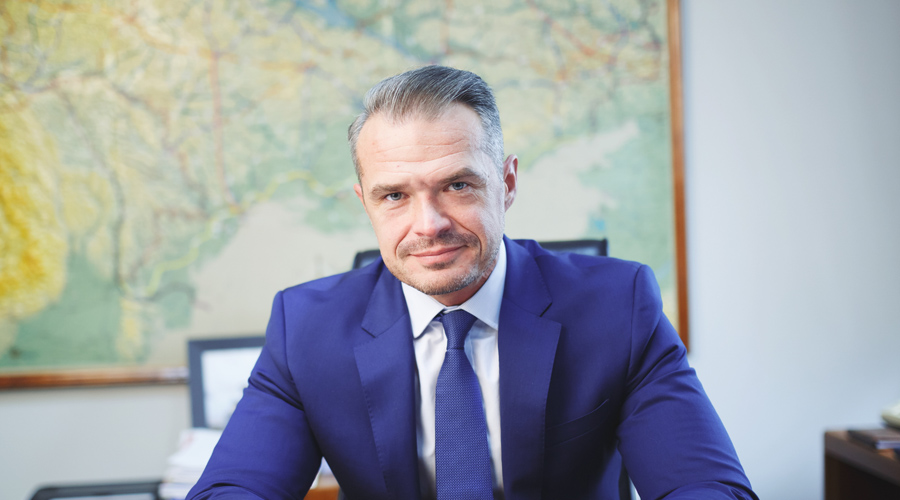
Ukravtodor is the state agency for the roads in Ukraine, which has an extensive 170,000km network that is in urgent need of repair following 25 years of abandonment. Agency chief Slawomir Nowak discusses the scope of the challenge – and the investment opportunities – as he draws on his own experience as transport minister in Poland to overhaul the system and adapt it to EU standards
You were appointed to this job two years ago after serving as Poland’s minister of transport between 2011 and 2013. What have been your major challenges and achievements during this time?
I was surprised at the Ukrainian government’s invitation to head Ukravtodor, but as minister in Poland we had already been in touch over infrastructure projects, and I was excited about tackling the biggest challenge of my life. The sheer scope of the needs here is much bigger than in Poland, as the sector was built on Soviet standards and is in a terrible state of disrepair. So my priorities were to rebuild the system with European-oriented standards and to repair the network.
How are you doing this?
We implemented two major reforms: one to fund roadworks in the future, and another one to decentralize the road network, which encompasses 170,000 kilometres and was impossible to manage from one single office. We gave 120,000km back to the regions, and from this year we are responsible for 50,000km of national and international roads. This year we are giving 20,000km to local authorities. We take inspiration from European countries, where road decentralization is even deeper.
What are the weaknesses of Ukraine’s roads?
The main weakness I saw when I took up the job was the Soviet-style management, but I believe we changed that. We are now following EU standards and changing the mentality of the sector. The other main weakness is common to countries all over the world: not enough financial resources to fund growth. While the Ukrainian economy is growing, there are still economic problems, and the state does not have enough money to repair and expand a network of this size.
Are you seeing an interest from foreign companies?
It is a great satisfaction to me to see that trust in the Ukrainian road sector is growing abroad. A lot of foreign companies are coming to us to discuss business, and we have a Turkish and Chinese presence here already. But we need European investors in the sector in order to change the work culture. We already have two or three small German companies operating here, as well as some Hungarian ones.
In March you said Ukraine would need around €10 billion to repair state roads over the next five years. What roads are your priority and how will this impact the country?
We calculated this amount to repair the main roads between the capitals of the regions, which represent the core network in Ukraine. This is the priority for the next five years. When I took up the job I found that Ukraine lacked a strategy for road development, so we drafted one and now every citizen, company and politician can see what road we want to repair, when, and on what budget. Every euro invested in the road sector gives €2.5 back to the economy in GDP growth, according to the experts. And I feel that it might have even more of an impact in Ukraine because you can imagine what the road conditions are like when you know that for 25 years there was no maintenance work at all. It is a disaster. Our research with the World Bank shows that over 90 percent of the network is in either bad or very bad condition. So this is the scale of our needs. It is a huge challenge.
How important will private-public partnerships be, and what message would you send to German investors interested in getting involved?
Companies from the EU are more than welcome on our construction sites. We need EU mentality, EU technology and EU money. But we knew that the concession law needed to be changed in order to attract foreign investment, so we approved fast-track changes and now the law is more business-friendly than before. The government understood that it is impossible to attract investors with a full-risk scheme, so now we have a shared-risk system in place. We are preparing a €500 million concession project for the first 70km of a road between Poland and Ukraine. We want to start as soon as possible and are preparing the bidding conditions.